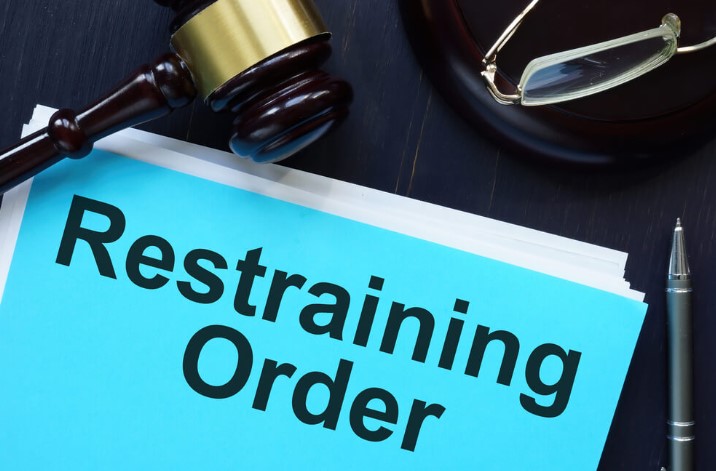A restraining order lawyer specializes in cases where an individual seeks legal protection against harassment, abuse, or stalking. These legal practitioners are well-versed in the complexities of restraining order laws and work diligently to safeguard the rights of their clients. Their role is crucial in guiding clients through the often complicated process of obtaining a restraining order, providing both legal advice and emotional support. By assessing the unique circumstances of each case, these attorneys strategize to maximize the chances of achieving a favorable outcome.
Obtaining a restraining order is a legal measure designed to protect individuals from harm or harassment. An attorney in this field is responsible for presenting a compelling case to the court, detailing the reasons why their client requires protection. This includes gathering evidence, preparing legal documents, and representing clients in court. With a deep understanding of the legal criteria for issuing restraining orders, these lawyers ensure that clients understand their rights and the implications of the court’s decision.
The support provided by a restraining order attorney can be instrumental in navigating the legal system, which can seem intimidating to those unfamiliar with it. These attorneys offer not only their legal expertise but also guidance and support, helping clients to articulate their needs and concerns effectively. By presenting a clear and well-prepared case, a lawyer increases the likelihood that the court will recognize the necessity of a restraining order, thereby offering clients a sense of security and relief.
Understanding Restraining Orders
Restraining orders are legal instruments designed to protect individuals from harm or harassment. This section provides an in-depth look at the types, acquisition process, and the role attorneys play in ensuring the rights of the alleged victims are safeguarded.
Types of Restraining Orders
There are primarily two types of restraining orders: a Temporary Restraining Order (TRO), put in place to provide immediate protection, and a Permanent Restraining Order, which is issued after a court hearing and can last for a longer period. Protective Orders can encompass various situations, including domestic violence, stalking, and sexual assault.
The Process of Acquiring a Restraining Order
To acquire a restraining order, the petitioner must file a petition with the court. The document should articulate credible threats of violence or patterns of harassment. Once the petition is filed, a judge may issue a TRO, providing immediate, short-term protection. A full court hearing is then set, where both petitioner and respondent can present evidence and testimony.
Legal Requirements and Evidence
For a restraining order to be granted, the petitioner must demonstrate the necessity by a preponderance of the evidence. Items such as documents, photos, medical records, and police reports can support the alleged victim’s claim. The evidence must show that the petitioner has suffered harm or has been exposed to threats of violence, stalking, or harassment.
Protecting Victims’ Rights
Restraining orders serve to protect the rights and safety of the alleged victim, which can also involve the welfare of children if they are in potential danger. The legal system seeks to prevent further acts of violence or harassment by setting clear boundaries enforceable by law.
The Role of an Attorney
A restraining order attorney can provide legal advice and advocate for the petitioner or the respondent. Experienced and skilled attorneys can be found through an attorney directory. An attorney can help gather evidence, prepare for the hearing, and ensure that the client’s defense or accusation is presented effectively. The importance of affordable and qualified legal representation cannot be overemphasized in cases that deeply affect personal safety and legal rights.
After the Restraining Order Is Issued
Once a restraining order is issued, it is crucial that all parties understand the conditions set forth. The order is a legal instrument designed to protect individuals from harm or harassment, and compliance is mandatory.
Compliance and Consequences
Compliance:
- Parties Involved: The respondent must strictly adhere to all terms outlined by the state court order.
- Prohibitions: Typically, this includes refraining from contact with the protected individual and staying away from their home, workplace, and vehicle.
- Firearms: A respondent may be required to surrender firearms, as dictated by the judge.
Consequences:
- Violations: Failure to comply can result in arrests, fines, or additional charges related to violence or intimidation.
- Evidence: Police reports, testimony from witnesses, and other evidence are critical in enforcing the restraining order.
Modifications and Enforcement
Modifications:
- Process: Either party can request a modification of the order by submitting a petition to the court. Showing good cause is essential.
- Hearings: A judge will consider testimony and evidence during a hearing before making any changes.
Enforcement:
- Authorities: The sheriff’s office is typically responsible for service and enforcement of the order.
- Role of Court: Persistent non-compliance may result in a hearing, and further legal action determined by a judge.
Dealing with Violations
Reporting:
- Immediate police involvement is crucial when a violation occurs.
- Documentation through a police report can be used as evidence in court.
Legal Action:
- Those affected should contact their attorney to address any breach of the order.
- A violation may lead to arrest and potential criminal charges against the respondent.
Impact on Family Law
Custody and Visitation:
- A restraining order can significantly impact custody and visitation rights in divorce cases.
- The safety of children is paramount and judges will consider any evidence of violence in their determinations.
Divorce Proceedings:
- A permanent restraining order issued during a divorce may influence the judge’s decisions regarding asset division and financial support.
Resources and Support
Legal Support:
- Attorneys specializing in restraining orders can provide advice, represent individuals in court, and help modify orders.
Additional Resources:
-
Community organizations and state-funded programs may offer additional support and resources to those affected by domestic violence or harassment.





